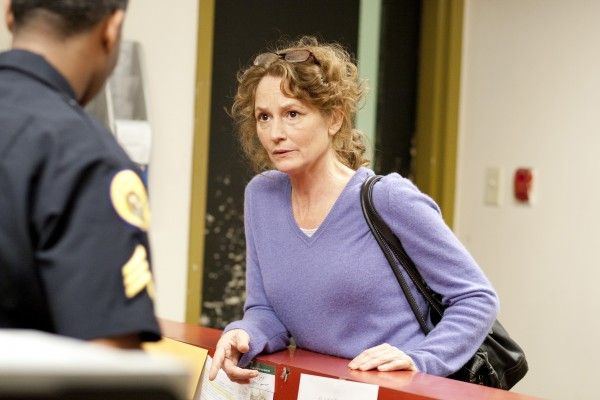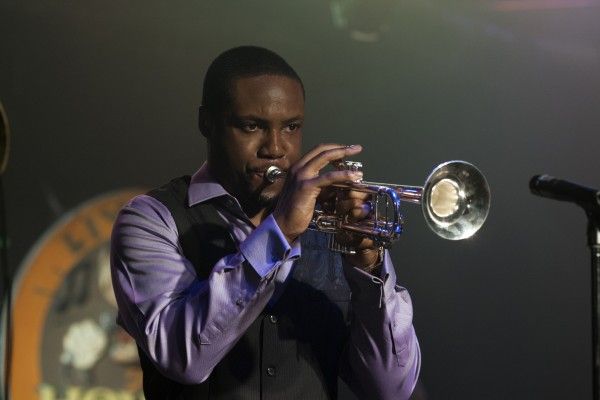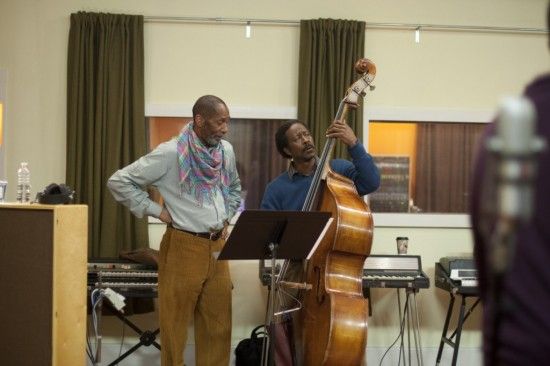Your heart aches, your toe taps ... it's Treme time! HBO generously sent out the first four episodes of the returning David Simon-helmed New Orleans drama, and even though just the premiere episode would have sufficed in proving that the show just keeps getting better and better, it was nice to really get immersed back into its world. Immersion is key with Treme, because the series is essentially a collection of vignettes about different aspects of New Orleans life, often with vague threads holding them together. Initially the idea for the series was pitched to HBO pre-Katrina, and was meant to be just about the cities musicians, which still remains a strong theme in the current show. But after Katrina the series obviously gained traction for a different reason, and there are few who would have handled the material so truthfully and so well as David Simon, who has created a number of critically-acclaimed dramas for the network (The Wire, The Corner and the greatly under-appreciated Generation Kill).
Despite a general love for New Orleans and such inherently compelling subject matter, the series has never taken off with viewers. Numbers for the series are low, and it rarely enters the awards race (which of course isn't much of a benchmark of quality since The Wire was never honored either, but nevertheless). So what is it about Treme that makes it such a difficult series? Hit the jump for some thoughts on the highs and lows of Treme, and why it is ultimately worth sticking around for.
Treme is an ambitious series. It's not just about music or a city rebuilding itself after a catastrophe, it's about those things and the police, social issues, romance, mystery, food, restaurants, history, family, politics and corruption. Each of these themes gets its own story, its own characters and its own world, and sometimes Treme feels less like a series that has a real trajectory than just a massive collection of POVs that happen to occupy the same general space and time.
But Treme does have a rhythm, usually tied together with music, that unites these micro and macro themes into one big (gumbo?) bowl. There are few parts of the series that don't feel specifically New Orleanian, and while that can work to the series' benefit, it has also rightfully been used as a criticism that the show is too "insidery." The best recaps for Treme come from NOLA.com, whose writers unpack the references and cameos each week for those not wholly in the know. It doesn't hinder one's enjoyment of the series, but it does create a feeling of exclusivity, like everyone is in on a joke we don't understand the punchline for. Names are dropped left, right and center of musicians and locals both living and dead, most enthusiastically by Steve Zahn's loveably goof Davis McAlary, who acts as a curator of culture and history both within the show and to those watching. At its best, it will send viewers to Wikipedia and YouTube, but occasionally it feels like homework, and very occasionally it seems downright patronizing. It can interfere with the flow of the narrative, too, when actors are more or less "interviewing" musicians or non-actors for history or context instead of engaging in scripted dialogue that may not be more natural technically, but would feel so in this (least we forget) fictional series.
In the end, Simon doesn't give a crap what I or anyone else thinks about it, and he's been plain in saying so. He's also known for covertly putting barbs in his work. Early in the upcoming season, the jazzman Delmond Lambreaux (Rob Brown) is discussing his new album at the release party, a "complicated" piece of work that's not well understood in the jazz community or anywhere, really. "They just don't get it," he says, and is jokingly chastised with, "it's getting good reviews from the critics and, what, you want them to understand it, too?" Delmond goes on to talk about how everyone is mad at the album (modern jazz musicians as well as the Mardi Gras Indian culture it incorporates), then one of his peers passing by pats him on the back and says, "where in your imagination did all that come from?" It's hard not to read the conversation as a stand-in for Simon, his viewers and his critics.
In the third season, which takes place two years after the storm, the city is finally starting to get back on its feet, and the political relief money is beginning to pour in. The police feature more heavily, which is (along with political corruption) familiar territory for Simon, and where he really does his best work. There are new characters as well, including a young journalist (Chris Coy) who teams up with Toni Bernette (Melissa Leo) to bring down some of the worst of the police force who are terrorizing, not protecting, citizens.
These are complicated stories that are fantastic to watch unfold, but nothing is given much time because no story collected is ever dropped. The most egregious of these seems to be the continued chronicling of Sonny (Michiel Huismam), the talented Annie Tee's (Lucia Micarelli) ex-boyfriend, whose main focus seems to be about finding ways to grope his new girlfriend in the car away from the eyes of her overprotective father. It's an ok story, but it's easy to meet it with no more enthusiasm than a shrug. Especially when there's LaDonna (Khandi Alexander), Albert Lambreaux (Clarke Peters), Janette (Kim Dickens, who wonderfully gets lots of screen time this season in episodes co-written by Anthony Bourdin), Antoine (Wendell Pierce), Terry Colson (David Morse), and even that charming creep Nelson Hidalgo (Jon Seda) waiting to update us on their lives, none of which disappoint in the slightest.
The bottom line is that if you already love Treme, there's still plenty here for you -- more, in fact, than ever before. If you're just starting out, you'll have go back to Treme 101, literally, the first season and first episode. There are no Cliff Notes here, no "last time on," no hints at all for new viewers (or old). It's a difficult but beautiful piece of work about a difficult and beautiful city. To quote Toni, "Welcome to New Orleans. It's a different world." And it's worth putting in the work to feel at home there.





